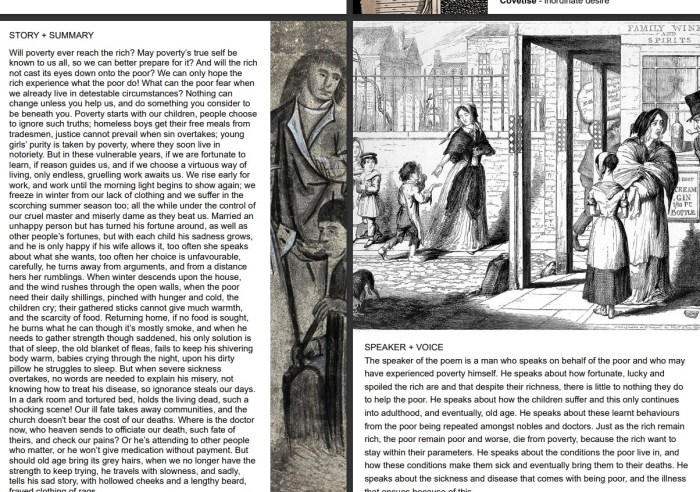From the complaints of poverty nicholas james – Nicholas James’s poignant complaints about poverty, penned in the 18th century, resonate deeply with contemporary society. His firsthand account of the hardships endured by the impoverished offers a valuable historical perspective on the enduring problem of social inequality.
James’s vivid descriptions of the suffering caused by poverty challenge readers to confront the systemic injustices that perpetuate this issue. His writings provide a powerful lens through which to examine the complexities of poverty and its impact on individuals and society as a whole.
Nicholas James’s Background and Context: From The Complaints Of Poverty Nicholas James

Nicholas James was an English clergyman who lived from 1590 to 1662. He was born into a poor family in rural England and witnessed firsthand the hardships faced by the poor during a time of significant economic and social upheaval.
James’s complaints about poverty, written in the early 17th century, provide valuable insights into the experiences and perspectives of the poor during this period.
Significance of James’s Complaints
James’s complaints are significant because they offer a firsthand account of the lived experiences of the poor during a time when poverty was widespread and often overlooked. His writings shed light on the challenges faced by the poor, including issues such as food insecurity, lack of access to healthcare, and the stigma associated with poverty.
Analysis of James’s Complaints

Main Themes and Arguments
James’s complaints focus on several main themes, including the moral obligation of society to care for the poor, the need for economic justice, and the importance of addressing the root causes of poverty. He argues that poverty is not simply a personal failing but rather a systemic issue that requires collective action to address.
Specific Grievances and Hardships, From the complaints of poverty nicholas james
James’s complaints detail the specific grievances and hardships experienced by the poor. He describes the challenges of obtaining food, clothing, and shelter, as well as the lack of access to healthcare and education. He also highlights the psychological and emotional toll that poverty takes on individuals and families.
Language and Tone
James’s complaints are written in a passionate and persuasive tone. He uses vivid language and personal anecdotes to convey the urgency and severity of the issue. His writings are characterized by a sense of moral outrage and a call for action to address the injustices faced by the poor.
Impact and Legacy of James’s Complaints

Immediate and Long-Term Effects
James’s complaints had a significant impact on public discourse about poverty. His writings helped to raise awareness of the plight of the poor and contributed to a growing movement for social reform. In the long term, James’s ideas influenced the development of policies aimed at addressing poverty and social inequality.
Understanding of Poverty and Social Inequality
James’s complaints helped to deepen the understanding of poverty and social inequality. His writings provided evidence of the systemic nature of poverty and challenged the prevailing view that poverty was solely due to individual laziness or moral failing.
Subsequent Movements and Policies
James’s ideas have influenced subsequent movements and policies aimed at addressing poverty. His writings have been cited by activists and policymakers as evidence of the need for social justice and economic equality. James’s work continues to inspire efforts to combat poverty and create a more just and equitable society.
FAQs
What was the significance of Nicholas James’s complaints about poverty?
James’s complaints were significant because they provided a firsthand account of the hardships endured by the impoverished in the 18th century. His writings shed light on the systemic injustices that perpetuated poverty and challenged prevailing attitudes towards the poor.
How did James’s complaints contribute to the understanding of poverty?
James’s complaints helped to humanize the issue of poverty by providing a personal narrative of its devastating effects. His writings fostered empathy and raised awareness about the need for social reforms to address inequality.
In what ways are James’s complaints still relevant today?
James’s complaints remain relevant today as poverty and social inequality continue to plague societies worldwide. His writings serve as a reminder of the urgent need for policies and initiatives that promote social justice and provide opportunities for all.